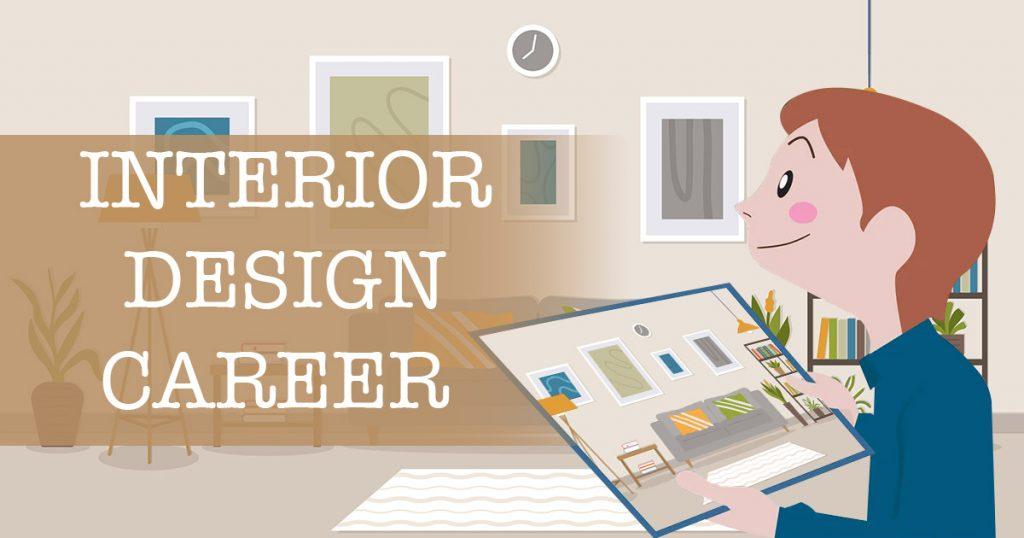Interior design is a good career, as it can be rewarding and offers many benefits, such as the chance to be creative every day, work with interesting clients, and bring new life to dull spaces. It also provides flexibility in scheduling and the potential to earn well, especially if you own your business. However, it comes with challenges like handling stressful situations with demanding clients and meeting tight deadlines.
Newcomers to the field might also need some time to establish a good reputation and must keep up with changing trends. Despite these challenges, a strong education, good time management skills, and a passion for the job can help overcome the difficulties until you see the benefits of being an interior designer.
What are the Benefits and Limitations of Being an Interior Designer?
A career in interior design is both creatively rewarding and challenging. This detailed post discusses the main pros and cons of working as an interior designer to help you decide if it’s the right career for you. By offering a balanced view, we aim to assist you in determining whether becoming an interior designer is a good fit for your interests and goals.
Benefits of being an interior designer:
Creativity
Interior designers have the daily privilege of using their creativity to turn plain, uninteresting rooms into eye-catching, beautiful spaces. Each project offers a blank canvas on which they can apply their artistic vision, transforming environments in ways that reflect both their creativity and the personalities of their clients.
For those who have a passion for art and design, and who value a career where they can consistently think creatively and innovatively, interior design is an ideal choice. This career path not only allows designers to showcase their creativity but also to see the tangible results of their vision and hard work, bringing joy and satisfaction in their professional lives.
Diverse Clients
Interior designers have the unique opportunity to closely collaborate with a variety of clients, giving them insights into different lifestyles and personal tastes. By working together, designers learn about their clients’ needs, preferences, and how they envision their living spaces. This interaction not only helps designers create spaces that truly reflect each client’s personality but also keeps the job fresh and interesting. Engaging with people from diverse backgrounds and walks of life enriches a designer’s experience, making each project distinct and exciting.
Travel
Site visits are a crucial part of an interior designer’s job, allowing them to physically explore and understand a space before they start designing it. This hands-on approach helps designers assess the layout, lighting, and overall vibe, ensuring their designs will suit the space perfectly. Additionally, working on interior design projects, especially in the luxury residential sector, can offer unique opportunities to travel.
Some of these projects may be situated in exotic locations, providing designers with the chance to experience new cultures and inspirations while they work. This not only makes the job more exciting but also enhances a designer’s creativity and broadens their professional experience.
Flexibility
Many interior designers value the flexibility that comes with being self-employed. They appreciate setting their own schedules, which allows them to work at times that suit them best, unlike the fixed hours of a typical 9–5 job. This flexibility can lead to a better balance between work and personal life, making it easier to attend to family needs or personal interests. On the other hand, some designers thrive on collaboration and find joy in leading and developing a talented design team.
Disadvantages of being an interior designer:
Cruel and Difficult Clients
Handling the demands of clients while working within tight deadlines can make interior design a stressful career. To succeed and avoid feeling overwhelmed, it’s essential for designers to develop strong stress management skills. Techniques such as organizing tasks effectively, prioritizing work, and taking regular breaks can help manage the pressure. It’s also important to maintain open communication with clients to set realistic expectations about timelines and outcomes. By managing stress well, interior designers can keep their work enjoyable and avoid burnout.
Longer Hours
Interior designers, especially those running their own businesses, often find themselves working more hours than the typical nine-to-five job. This can make achieving a healthy work-life balance tough. It’s important for designers to establish clear boundaries between work and personal time to prevent burnout and maintain well-being. Setting specific work hours, prioritizing tasks, and learning to say no when necessary can help manage the workload and ensure there’s time for relaxation and family.
Learn Technical Skills
To be successful in interior design, you need a mix of creative flair and technical skills. This field requires not only the ability to imagine and design appealing spaces, but also the know-how to turn those ideas into reality, which involves understanding materials, compliance with regulations, and the use of design software. People who are not naturally artistic might find it difficult to come up with innovative designs, while those who don’t pay attention to details could face challenges in executing plans accurately.
Changing Trends
Interior design is a field that’s always changing, with new trends and styles emerging all the time. To keep up, designers need to continually educate themselves and stay informed about the latest developments. This involves doing research, attending workshops, and possibly taking courses to stay ahead of new technologies and materials. Staying adaptable and flexible is crucial for interior designers, as they need to be able to integrate new ideas and trends into their designs to meet current demands and keep their work fresh and relevant.
Determine if Interior Design is the Right Career Path for You
If you’re inspired by the idea of transforming spaces and influencing how people experience their environments, consider exploring a career in interior design. Delve into this dynamic field to unleash your creativity, meet diverse people, and shape the world around you—one room at a time.
